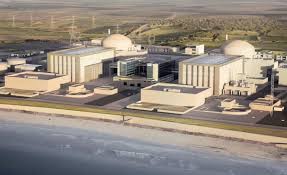The founder of renewable energy group Good Energy has slammed the government’s decision to go ahead with the much-delayed Hinkley Point C nuclear power station project.
Juliet Davenport OBE, who built Chippenham-based Good Energy from scratch in 1999 into one of the largest businesses of its kind with a £37m market value, described the green light for the £18bn scheme as “a bad move”. 
She added: “It will take at least a decade to build and leave our grandchildren an inheritance of high energy costs, hazardous waste, security worries, and a plant that needs complex and costly decommissioning.
“No wonder only 36% of the British public support nuclear, compared to a whopping 76% for renewables.
“The same future generations that will blame us for Hinkley, could instead thank us for a legacy of investment in renewables.
 “The transition to renewables is inevitable and brimming with economic opportunity – the UK should embrace it.”
“The transition to renewables is inevitable and brimming with economic opportunity – the UK should embrace it.”
Earlier this week Good Energy, which has a dedicated focus on 100% renewable electricity, announced a 164% increase in half-year pre-tax profits to £1.4m on revenue up by 40% to £45.6m.
The company owns Delabole Wind Farm, the UK’s first commercial wind farm, and also owns and operates Hampole Wind Farm, near Doncaster, as well as seven solar farms.
Juliet, pictured above, sits on the Energy UK board as a representative of smaller suppliers and in June 2015 was appointed to the board of the Natural Environment Research Council. She was awarded an OBE for services to renewables in 2013.
The government argues that Hinkley Point C is badly needed to keep the UK’s lights on in the future. When fully operational it will be responsible for around 7% of the nation’s power. Supporters claim renewable schemes would never be able to generate as much energy.
Overall, around 25 000 jobs during the construction period and 900 operational jobs will be created during the 60 years that Hinkley C is due to supply electricity.



















